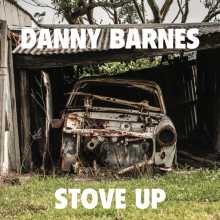when i was a kid back in the 60’s, my old man would play records on a record player that looked like a piece of furniture. you had to sit and look at it like you were watching tv. i got the idea from him, and my other family members, that there were these real Masters of music that we were hearing. and they deserved appreciation and study and repeated listening. my sense of them at that young age were that they were larger than life figures almost like bible characters come to life. i suppose that was a bit of Modernism there, the tv and magazines were filled with these images of great, larger than life musicians, actors, writers, architects, poets, politicians and so forth. [i’m of the age where i remember when the beatles had new records out, hendrix and so forth.] so i had a concept of these great Masters pretty early on and i’ve held this sort of...reverence since. [my folks had pretty good taste in music, especially country music.] i remember that live at folsom prison johnny cash record was a new release. when black sabbath was new that was pretty amazing.
when i started collecting music on tape and LP’s and so forth myself [i got my first 45 when i was 5 etta james you got it on chess], my brother and i were always trying to find the best musicians. the perceived economic status of an artist in question had nothing to do with it, in other words, how successful the artist appeared on the outside or whatever. i didn’t think a fellow like slim harpo or skip james or wade ward would be considered particularly wealthy in that sense, nonetheless, they were Masters. and that was enough and in my brain i saw no difference between jimmy reed [who was on jukeboxes] and george benson [jukeboxes, radio and tv], or whatever, they both were Masters. all that mattered was aesthetics. how good was the art? money and popularity really never came up, as a matter of fact, i assumed my classmates at the local farming community high school were not going to be hep to augustus pablo and that was just fine with me. nor flatt and scruggs. nor ornette {even though he was from fort worth just up the road}.
in short many of the current, living Masters, were on tv and you could find their records at the library and at record shops and what not. of course they were touring too thank you mr. lightnin hopkins. and they were on the radio to an extent. earl scruggs was on tv and there were only three channels, so the entire tv watching population had a one in three chance of seeing a true Master of music. {i tried to explain this to several folks that are too young to remember, and i reckon it’s not really possible to grasp it except experientially, and perhaps that’s best.} there was a really good blues radio show out of austin my brother and i listened to religiously. and a great gospel station on the am during the day from marlin, texas nearby, which is where the great Master willie johnson was from.
my thinking has been, if you really want to hear the best stuff, a good question to ask is, who are the Masters? both past and present. the True Masters of Music. if you want to learn to really play, you best get with a Master. [i study with a Master].
it’s a lifelong process to develop an aesthetic system. one has to keep refining and studying. but in a sense, it’s one of the most important things to work on. an early theory about art was that it was a balm to brutality of life and whatnot. so you’re probably going to need that ha! if a person wants to really learn about music, working on a sort of timeline through the decades, with the Masters of each period, is a very good study. this quest was sort of inculcated in me at a very young age and i’m still working on this. it’s a common sentiment if you study with a Master or if you have friends that are in that league. i’m still learning and finding out about so many musics. this is my main interface here with life this…quest of aesthetics. having a system, refining it and so forth.
music is good!







